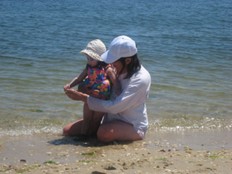HOW TO WRITE A LITERARY/READER’S RESPONSE
Literary Responses and Reader’s Responses are similar pieces of writing that IB English students must learn to write in order to succeed in the course. They are not exactly the same, so your teacher’s advice is more important than mine (they are the ones grading it after all), but here is my general method to make both types of responses:
Read the book
- Don’t make more work for yourself by trying to read all the summaries and come up with ideas. Practicing reading large volumes of text makes it easier to read quickly on the English Regents and SAT. It’s also less entertaining to read a summary.
Look at the emerging big ideas of the author
- Listen during class discussions – your teacher will probably point out big ideas, so pay attention!
- Look at the context of the book (country, time period) to see why the author may have written it and/or how the context impacted the writing
- Sometimes quotes and reviews on the covers of the book are insightful.
Ask yourself: What is the author doing? How? and Why?
- “What” asks about the effect on the reader
- “How” asks about the language the author uses (ex. repetition, word choice, sentence structure)
- “Why” is the part where you relate the author’s choices to their big ideas
Some things to look for (not an exhaustive list)
- Side characters the author seems to focus on for a bit: I’m not talking about Tom or Daisy from the Great Gatsby (you could write about them, but focus on a very specific aspect, maybe their speech or the way they dress); I’m talking about characters like Wolfsheim or maybe Gatsby’s parents because they can represent a specific aspect of society the author is commenting on. Think about why the author would bother spending time describing them.
- Allusions: one of my favorite things to write about. If the author seems to be referencing something in the real world, search it up! Even if you know about it already, maybe something you see online can help you find a deeper meaning. Common allusions are mythical or biblical. Oftentimes if the book is a social commentary, there are allusions to people with similar or opposite ideas to the author. When analyzing allusions, briefly explain what they are before exploring why the author referenced them.
- Repetition: If the author repeats it, it’s important. It may be interesting to look at the different contexts in which content is repeated and see if it’s meaning changes. Be careful not to analyze repetition in every response because it can get… repetitive.
If completely at a loss for ideas
- Talk to your teacher, they can help you find ideas worth exploring
- If you are afraid of doing that (not as good of an option):
- Flip to a page at the end of a chapter or section
- Read it, and pull out a paragraph that contains either an obvious idea or some cool words/weird writing
- Look for sentences with strong words or interesting sentence structures, then analyze the structure’s effect on the reader or the connotation and denotation of the words (look them up!). Try color marking connected words or structures.
- Connect the text to the significance of the chapter/paragraph/section
- Connect the meaning of the words/phrases/structure to a big idea of the author
Personal Connection Paragraph (Mainly for IB HL Year 2 Students)
- Write about how a specific part of the text affected you, where you see ideas of the text in the real world, and where other texts relate to the one you are currently reading.
- Remember to stay SPECIFIC.
- Have a Works Cited page for any outside sources used
- Link to important information for HL2 LR stuff: https://docs.google.com/document/d/1G9qaBzCvdTTuyMB_yDTZAeIAz9XJwXB86-EMIXCVS-0/edit?usp=sharing
Get the ideas down first, worry about grammar later
- If you can get into a flow, keep it going for as long as possible
- It is often better to look at grammar after taking a break from writing
When worrying about grammar:
- Try reading your writing aloud to check for punctuation and if your words or sentences sound repetitive.
- Use a grammar checker
- Make sure the tense is consistent throughout the response (usually present tense). Make sure passive voice use is intentional.
- Make sure there is context before your quote. Page numbers should only be in the MLA citation. Example: After Sally spills coffee on his cat, Bob says, “Get out of my house!” (Salim 123).
- Never say, “at the beginning of the book/chapter”
Miscellaneous tips
- Sometimes it is beneficial to rewrite the topic sentence after analyzing your quotes because you realized the meaning was different from what you originally thought. Don’t box yourself into a wrong idea. The topics of paragraphs must be specific.
- Make sure you analyze everything in your quote, any text you include in your response should be deconstructed and analyzed. Quotes don’t have to be full sentences.
- You are talking about what the author is doing, so have their name at least twice in each paragraph (topic sentence and conclusion), but as long as it makes sense, the more the merrier.
- Be careful using phrases and idiomatic expressions used in everyday speech like “at face value” because they can be vague and hard to interpret.
- Your teachers chose these books because they have many ideas and interesting writing styles, there will always be something to write about. Don’t give up!

